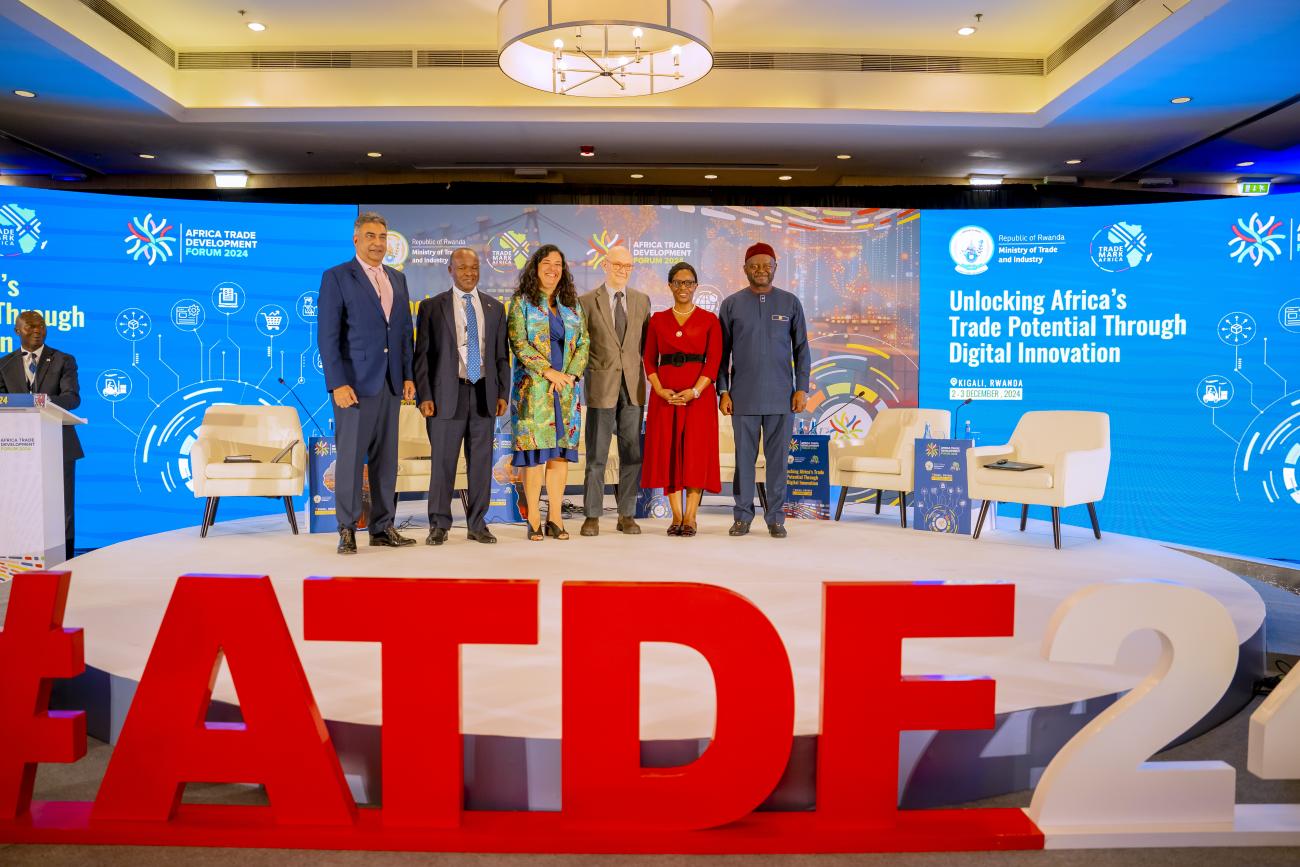Peace, instability, and insecurity remain significant barriers to intra-African trade and are often cited by investors and traders as reasons for its slow growth. Concerns about inefficient infrastructure, both physical and digital, combined with conflicts, have hindered the free movement of people and goods critical for trade.
Speaking at the Trade Development Forum, UN Resident Coordinator Ozonnia Ojielo challenged Africa's approach to these issues, emphasizing the need to shift focus from politics to economics as a foundation for peace and prosperity.
“The sad reality is that right now, most of our countries are focusing on politics when they should be focusing on economics. The logic behind the European Union's integration is that, after warring with each other for hundreds of years, European countries recognized that fostering business partnerships and interdependence would not only end wars but also pave the way for lasting peace and regional integration. They were at war with each other until Europe realized that economics creates incentives and motivation for peace through joint investments. If we can do business together, we cannot hurt each other,” said Ojielo.
The Forum moderated by Pascal Lamy, former Director-General of the WTO, featured a distinguished panel including Amb. Erastus Mwencha, Former Deputy Secretary-General of COMESA; Annette Mutaawe, Deputy Secretary-General of the EAC; Amb. Belén Calvo Uyarra, European Union Ambassador to Rwanda; and Jas Bedi, Chairman of the Kenya Export Promotion & Branding Agency.
Intra-African Trade: A Sobering Reality
Despite the launch of the African Continental Free Trade Area (AfCFTA) in January 2021, intra-African trade remains stagnant. According to the UN Economic Commission for Africa (UNECA), intra-African trade as a share of global trade dropped from 14.5% in 2021 to 13.7% in 2022. Exports within Africa also saw no improvement declining from 18.2% to 17. 9%, while imports hovered at 12.1% from 12.8%.
“We’ve been discussing One-Stop Border Posts, but why don’t we aim for non-stop borders, allowing trucks to move seamlessly across borders?” questioned Amb. Mwencha, emphasizing the urgency for transformative solutions.
Digitalization: The Key to Unlocking Trade
Digitalization is a critical component of the AfCFTA and aligns with the African Union’s Digital Transformation Strategy for 2020–2030, which envisions a unified digital marketplace.
Highlighting the potential of digital tools, Jas Bedi demonstrated the live session on the E-tariff book. “In seconds, the site shows that the tariff for tea from Kenya to South Africa, currently 240 cents per kilo, will be zero by 2030. Meanwhile, tea from outside Africa will continue to attract 400 cents per kilo. It’s working; it’s happening,” he said.
During the Forum, UNECA presented recommendations for enhancing intra-African trade through digitalisation from the paper titled “Enhancing Intra-African Trade, Through Digitalisation From a Regulatory Perspective.” The key recommendations cited are:
- Harmonizing regulations on cross-border data transfer and adopting a continental-wide data protection framework.
- Cooperating on standards for digital trade, including certification, testing requirements, and encryption standards.
- Facilitating African firms' participation in public procurement beyond domestic markets.
To date, promising digital tools making an impact include:
- Electronic Customs Systems: Faster border processing through real-time data exchanges.
- E-Certificates of Origin: Simplifying compliance with AfCFTA rules.
- Electronic Cargo Tracking Systems: Enhancing security and transparency in cross-border trade.
“At a strategic level, the UN, through its Secretary-General and various organizations, is advocating against digital apartheid. The UN voice is becoming increasingly vital in this transformation,” reiterated Ojielo.
Driving Africa’s Digital Trade Revolution
The Trade Development Forum, co-hosted by the Rwandan Government and TradeMark Africa, was held in Kigali under the theme "Unlocking Africa’s Trade Potential through Digital Innovation." The event highlighted the transformative role of technology in connecting markets, empowering businesses, and driving inclusive economic growth; laying a strong foundation for advancing Africa’s prosperity and peace.


















